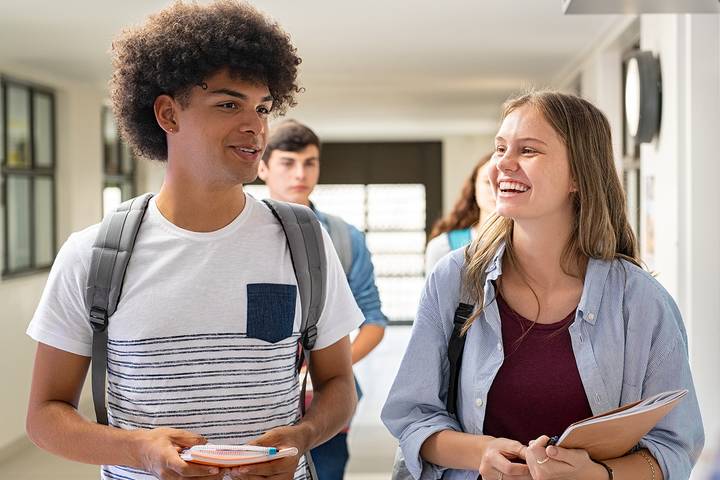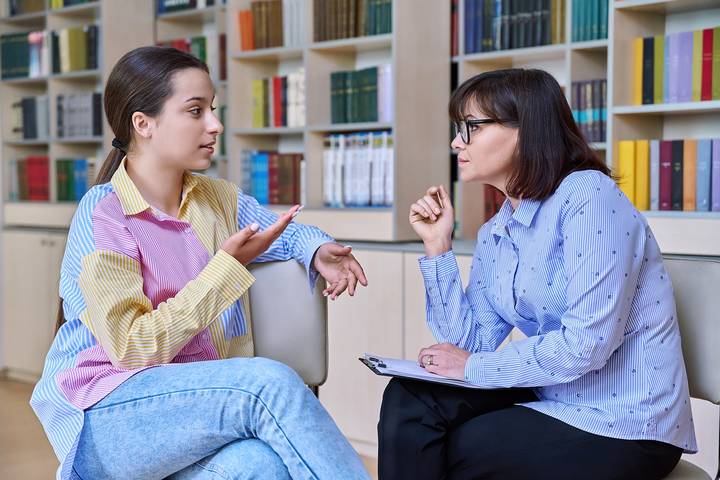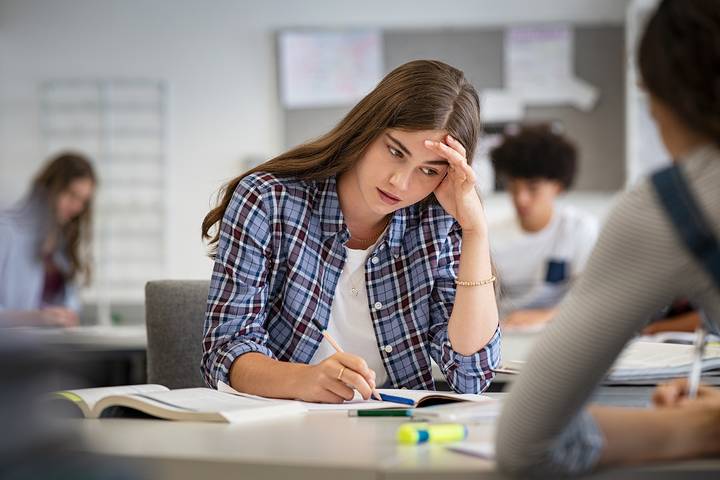School can be intimidating, especially if you are a new student. Even if you are a seasoned veteran about to graduate, taking on the daily nuances of high school or college can be challenging. Despite your concerns, know that you are not alone in this. Many students around you may feel the same social anxiety at school.
Social anxiety is common among teens due to their physiological and psychological growth at the time. Combined with the urge to fit in and be loved by all, school often leaves teenagers feeling uneasy around others. Regardless of age, anybody may feel anxious about navigating a stressful environment like school. The good news is that social anxiety can be manageable. With the right coping strategies, you will feel at ease with your peers on campus.
It’s important not to let anxiety stop you from engaging in school activities. Avoiding social situations may alleviate some tension in the short term. However, the mental strain will still be there, nagging at you. Instead, try your best to work through the social anxiety at school. You can use counselling services to help you manage and cope with the negative feelings.
Here are some helpful tips on how to deal with social anxiety at school:
Stop the negative thinking

In social situations that make us nervous, we quickly pick ourselves apart. Are we wearing the right clothes? Is our hair done weirdly? Hey, do I have broccoli in my teeth? This excessive self-focus can make you more aware of your nervousness, triggering even more anxiety.
Social anxiety often originates from insecurities and internalized fears. The first step in challenging your negative thoughts is identifying them. Notice when they pop up in your mind so you can analyze and challenge these critiques. Then, give yourself positive reinforcement. Gain confidence in yourself and replace the negative beliefs with positive approaches to social situations.
Also, try switching the perspective from yourself to an external focus. Concentrate on your surroundings in the present moment. Similarly, pay attention to the conversation around you. The objective is to keep your mind preoccupied and focus on something other than your fears.
Talk with students around you

Socializing can seem daunting for some people. You may not want to start casual conversations with others at school, but that’s okay! However, do your best to appear approachable. Making brief eye contact and smiling at others will show that you are open to discussions. You may be pleasantly surprised when others reciprocate your friendliness.
If somebody approaches you to talk, swallow your fear and speak as if you were old friends! Ask them about their class schedule, discuss different teachers or exchange notes about the latest assignments. If you’re unsure how to start a conversation with somebody, begin with a compliment. Ideally, praise them on something they could expand upon, such as an article of clothing or a piece of jewellery.
Adopt good habits for school

Although school may trigger social anxiety, the tension often breeds elsewhere. Many students often feel stressed about their academic responsibilities, from completing homework assignments to studying for important exams. On top of that, poor diet and a lack of sleep can make signs of social anxiety even worse.
You can deal with social anxiety at school by adopting a sensible routine. The goal is to create a calmer attitude when approaching a social situation. You can go to bed earlier and wake up with more time to prepare every morning, which starts your day positively. Other lifestyle changes include avoiding caffeine and getting more exercise. College students may also try quitting smoking or drinking less alcohol to handle their social anxiety better.
Breathing exercises for students

Breathing is a powerful tool. When you become anxious, your body reflects that. Rapid breath is one of the first changes to occur when you are anxious. Hyperventilation can disrupt the balance of oxygen and carbon dioxide in your body, leading to greater physical symptoms of anxiety. If you learn to slow your breathing, your symptoms will lessen, and the situation will appear easier to overcome.
Inhale slowly through your nose for four seconds, then hold your breath for two counts. Exhale slowly through your mouth for six seconds, pushing as much air as possible. Continue this pattern until you feel your breathing return to normal. You may feel your anxiety lessening over time.
Counselling for anxiety

Counselling is an effective way to deal with social anxiety at school. You can confide in a professional mental health expert who listens to your situation and offers helpful guidance. The counsellors help you shift your mindset to tackle the school year ahead. They challenge your negative thoughts, provide healthy coping strategies, and advise you on navigating social situations.
You can also confide in friends and family about your worries or struggles. At the end of the day, talking to somebody reinforces that you are not alone in this mental health journey. Your social anxiety at school is valid and manageable.

